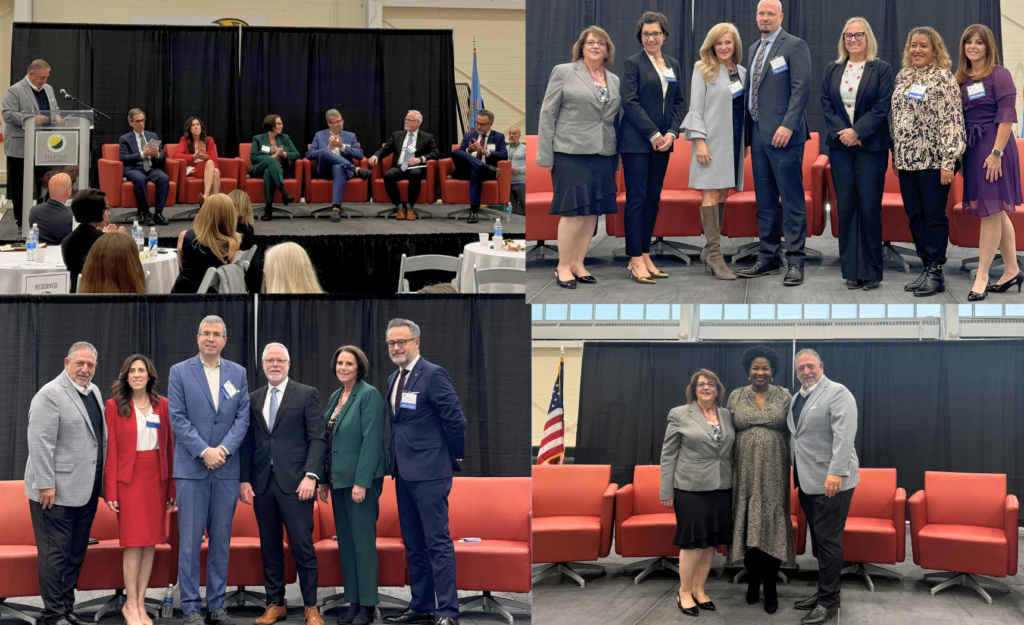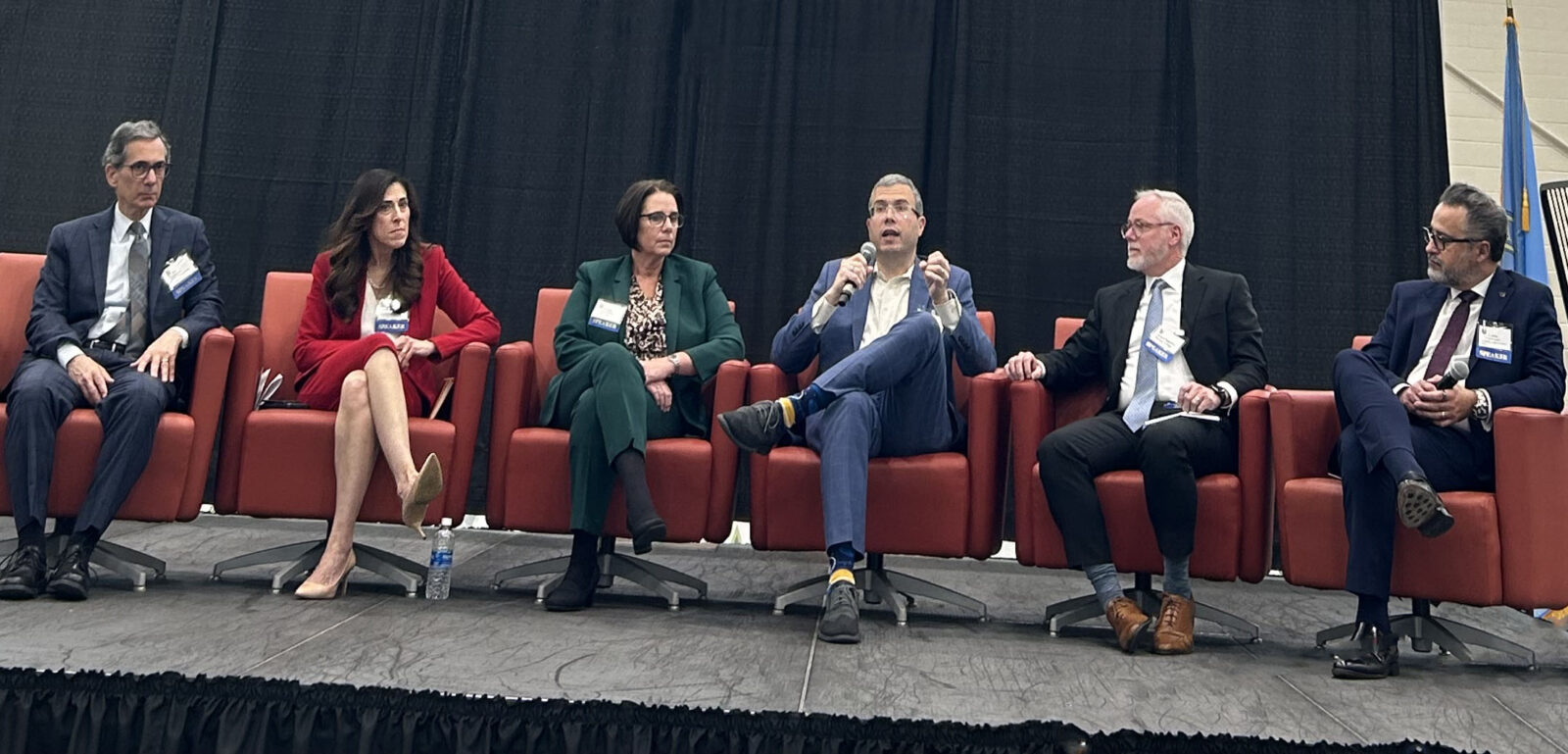In an ultimate meeting of the minds, area business leaders and university heads got together to hash out the best ways to move forward in a world that demands an educated workforce that also has hands-on skills.
Hosted by Felician University in Rutherford and coordinated by the Meadowlands Chamber (MC) in Lyndhurst, the two panels on Tuesday, Oct. 29 brainstormed at the 2024 Education Summit that hit home the whys and how. The Summit was an opportunity for business leaders to learn about and facilitate workforce development engagement in an open discussion with HR executives about the concerns and challenges they face.

The two panels moderated by MC CEO Jim Kirkos and MC Senior Director Judy Ross served as an opportunity for business leaders to learn about workforce development, with entrepreneurs, managers, and hirers engaging in an open discussion. HR executives had a unique opportunity to discuss with executives and hiring managers about the concerns and challenges they face.
Sandra Gilot West, Chief of Staff at the New Jersey Office of the Secretary of Higher Education, gave opening remarks about the opportunities available regarding business growth and employee hires.
Panel 1 included Dolores Ross, VP of Human Resources at American Dream; Sarah Melvin, HR executive, East Region, Quest Diagnostics; Steve Klos, VP of HR at Russo Development; Jessica Torres-Soto, EVP, chief people office, MikeWorldWide; Nina Nardone, executive client advisor, Lee Hecht Harrison; and Elaine Fotiadis, senior VP of talent acquisition, Valley Bank.
Panel 2 included Dr. Eric Friedman, president, Bergen Community College; Dr. Diane Recinos, president of Berkley College; Dr. Rafael Castilla,EVP of Eastwick College; Dr. Michael Avaltroni, president of Fairleigh Dickenson University; Dr. Mildred Mihlon, president of Felician University; and Dr. Michael Middleton., VP of Ramapo College.
The Summit served as an opportunity for business leaders to learn about workforce development, with entrepreneurs, managers, and hirers. The engaging open discussion with HR executives also dove into the additional concerns and challenges they face. Attendees were also able to explore out-lying resources to find new talent.
“We are making sure we have wraparound programs and services, career and counseling support,” said Felician University President Mildred Mihlon, PhD.
She pointed to digital micro-credentials and upskills — anything that will fill that skills gap. To close the skills gap, organizations need to invest in upskilling opportunities like micro-credentials, she said — mini-qualifications that demonstrate an individual’s abilities, knowledge or experience in a specific subject area. With micro-credentials, companies can leverage programs from educational institutions to upskill and reskill their workforce.
Unlike academic degrees, micro-credentials are more narrow in focus and can be completed in weeks or even days. They can range from soft skills training like self-management to the more pressing technical skills needed by employers, like data analytics. Additionally, micro-credentials provide a more personalized learning experience that is flexible, portable and cost-effective to implement.
It’s this skill disconnect that university and workforce leaders are looking at and conversing about. How can business and education work together to solve problems for a better tomorrow?











